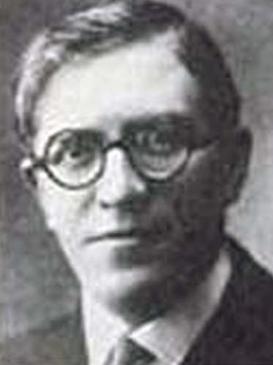Julio Álvarez del Vayo facts for kids
Julio Álvarez del Vayo (born in 1890 in Villaviciosa de Odón, Community of Madrid, Spain – died on May 3, 1975, in Geneva, Switzerland) was an important Spanish Socialist politician, journalist, and writer. He was known for his work in journalism and his roles during the Spanish Civil War.
Contents
Biography
Early Life and Education
Julio Álvarez del Vayo studied Law at universities in Madrid and Valladolid. He also did advanced studies at the London School of Economics in Britain.
He joined the Spanish Socialist Workers' Party (PSOE) when he was very young. He disagreed with his party working with the dictatorship of Primo de Rivera (1923–1930).
Journalism and Early Career
As a journalist, he wrote for newspapers like La Nación in Argentina, El Liberal and El Sol in Spain, and The Guardian in Britain. He traveled a lot for his work. He visited the United States, the battlefronts during the First World War, and the Soviet Union.
In 1930, he was involved in plans for an armed uprising against the Monarchy in Spain. When the Second Republic was created, he became an ambassador for Spain. He served as ambassador to Mexico and later to the Soviet Union. After that, he was elected as a member of the Parliament. He followed the more revolutionary ideas within the PSOE party.
Role in the Spanish Civil War
During the Spanish Civil War (1936-1939), Julio Álvarez del Vayo held several important jobs for the Republican side. He was the minister of Foreign Affairs twice. He also represented Spain at the League of Nations. He even served as a commissar and general in the Army.
Before the Civil War, in 1933, he was part of a group that watched over a conflict between Bolivia and Paraguay during the Chaco War.
After the Francoist army took over Catalonia, most Republican leaders went to France. But Álvarez del Vayo chose to return to the Republican zone. He led the last attacks against the Francoist troops. He left Spain by plane from Monòver, Alicante, just before the war ended.
Life in Exile
In the 1940s and 1950s, Álvarez del Vayo lived outside Spain. He lived in Mexico, the United States, and Switzerland. His political views became more extreme, and he was removed from the PSOE party.
He then started a new group called the Unión Socialista Española. This group was very close to the Communist Party of Spain. In 1963, he felt there was a need for a pro-Republican group to continue fighting within Spain. So, he created the Spanish National Liberation Front (FELN). However, this group stayed small and its activities were limited because of the strong Spanish police.
Finally, in 1971, Álvarez del Vayo's FELN joined another group called the Revolutionary Antifascist Patriotic Front (FRAP). He was the acting president of FRAP when he passed away on May 3, 1975, after a heart problem.
Writings
- La nueva Rusia. En camión por la estepa. Las dos revoluciones, siluetas..., Madrid: Espasa-Calpe, 1926
- La senda roja, Madrid: Espasa-Calpe, 1928
- La guerra comenzó en España: lucha por la libertad, Mexico City: Séneca, 1940
- Freedom's Battle, New York: Knopf, 1940
- The Last Optimist, New York: Viking, 1950
- Reportaje en China. Presente y futuro de un gran pueblo, Mexico City: Grijalbo, 1958
- China vence, Paris: Ruedo Ibérico, 1964
- The March of Socialism, New York: Hill and Wang, 1974
- Give me combat, Boston: Little Brown, 1973 (memoir)
See also
 In Spanish: Julio Álvarez del Vayo para niños
In Spanish: Julio Álvarez del Vayo para niños
 | Janet Taylor Pickett |
 | Synthia Saint James |
 | Howardena Pindell |
 | Faith Ringgold |


